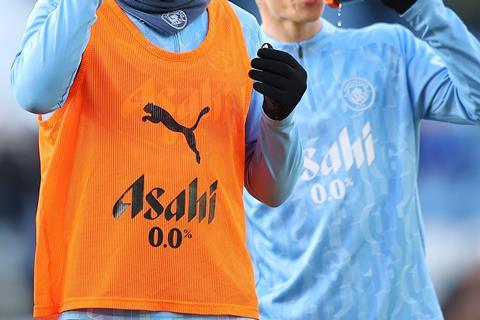Football, beer and fashion: the pre-trial review in DKH Retail Ltd & Ors v City Football Group Ltd [2024] EWHC 3231 (Ch) truly had it all. But what makes the ruling even more interesting is that it is an early example of how enthusiastically the courts are embracing their power to order parties to mediate under the revised Civil Procedure Rules.

It is no secret that the senior judiciary is keen to resolve disputes in a way that does not involve courts or judges. Only last month, the lady chief justice floated the idea of making greater use of mediation in international commercial disputes by creating a new ‘London Dispute Resolution Committee’. Meanwhile last October, the CPR was updated to spell out that, following the Court of Appeal’s landmark decision in Churchill v Merthyr Tydfil County Borough Council [2023] EWCA Civ 1416, the courts can compel parties to engage in alternative dispute resolution. This April, further CPR amendments will explicitly give effect to Churchill in the Commercial Court and Circuit Commercial Court.
So against this pro-ADR backdrop, the DKH judgment is well worth reading. In particular, it contains examples of classic objections to ADR that will no longer satisfy the bench.
The claim, simple enough to fall within the Shorter Trials Scheme (STS), was brought by the owners of the Superdry clothing brand against the company that runs Manchester City Football Club’s commercial operations. The core question was whether the public was likely to view promotional branding on players’ kits as denoting the Superdry brand, or that of City’s sponsor, Asahi Super Dry 0.0% lager. The words on the kit included ‘Super’ and ‘Dry’. Superdry maintained that as football supporters are ‘notoriously tribal’, it would never want to appear as a sponsor on football kit; and it had already received ‘abuse’ due to the perceived association with Manchester City.

The claimants invited Mr Justice Miles to exercise his power to order the parties to attempt a mediation. In a judgment handed down in November, the judge swept aside the defendant’s objections and ordered the parties to mediate. An ‘I-told-you-so’ postscript added to the judgment in January revealed that the parties had indeed managed to settle their dispute.
In seeking the order to mediate, the claimants argued that the case was capable of being resolved in this way, and was not particularly complicated. They pointed out that an out-of-court compromise could enable parties to reach an agreement on variables such as the form and size of any logo or lettering on the kit, payment of money, and the timing of any changes.
The claimants noted that while there had been unsuccessful settlement negotiations, mediation had not yet been tried; and that with the parties on the brink of incurring hundreds of thousands of pounds of further costs, a ‘short, sharp’ single-day mediation might allow both sides to avoid ‘at least some’ of those costs, potentially saving court time and resources.
The defendant, however, put forward a host of reasons why mediation should not be ordered. For a start, the court should only order mediation where there is ‘a realistic prospect of success’, which it said was not so here. It wanted to know once and for all whether it could place the Asahi branding on football kits, and said it was entitled to a judicial determination of that question. The defendant also pointed to the claimants’ own assertions that they would never allow their brand to be shown on football kits. All this suggested that mediation was not realistically likely to lead to a settlement, the defendant argued.
What’s more, with a trial date ‘imminent’, the defendant said the application for a mediation order was ‘very late in the day’, with much money already spent. Also, on a practical level, it had ‘very limited availability’ for a mediation before the trial date.
None of these arguments cut through with Mr Justice Miles. He swiftly dismissed the assertion that the parties were ‘diametrically opposed’ and wanted a judicial determination. Both points were common arguments, and yet ‘experience shows that mediation is capable of cracking even the hardest nuts’, he said. The judge saw merit in the defendant’s argument that the order to mediate was being sought too late. However, he said this avoids the common complaint that mediation is ‘premature’, before the parties’ positions have crystallised.
Meanwhile, the judge was persuaded by the claimants’ point that this was a straightforward and self-contained dispute and that a mediation offered scope for a more versatile agreement than court could offer. He therefore ordered a mediation for December.
This ruling, albeit under the STS and relating to a fairly straightforward dispute, may well sound a death knell for those common arguments along the lines that mediation should not be ordered because it ‘won’t work’. Not only did Mr Justice Miles destroy that line of reasoning in his comments, but also through the postscript informing us that the parties did ultimately settle, he appears to have proved himself right.
From now on, any party seeking a mediation order, even at the 11th hour, and facing objections from their opponent, will have a copy of DKH to wave under the judge’s nose. This new ruling, taken together with the pro-ADR signals beaming out from the upper echelons of the judiciary, will no doubt prove the first of many cases in which parties will be ordered to mediate, whether both of them want to or not.
Rachel Rothwell is editor of Gazette sister magazine Litigation Funding, the essential guide to finance and costs.
For subscription details, tel: 020 8049 3890































3 Readers' comments